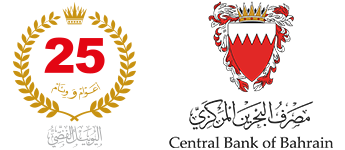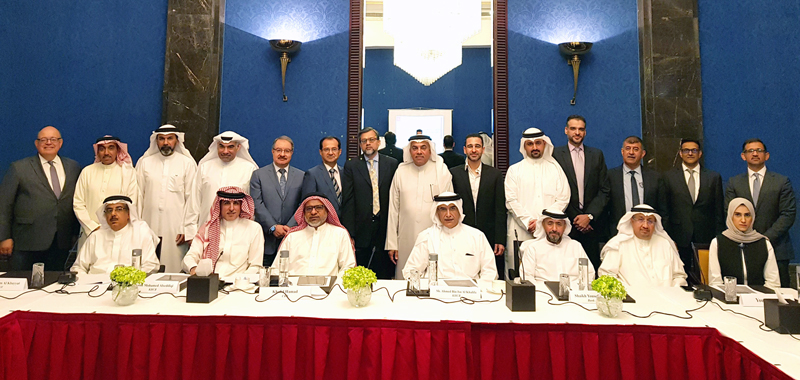Manama, Bahrain – 21 May 2019 – The Waqf Fund organized its 10th Corporate Governance workshop in Bahrain to discuss the causes behind recent global high profile misconduct cases, how to set the exchange ratio in bank mergers and strategy, innovation and competitive response. 20 people including Chairmen, Board members and CEOs of Waqf Fund member institutions attended the workshop.
Dr. Nabil El-Hage, an expert on corporate governance and a former professor of Harvard Business School, led the workshop. He presented four cases; three global and one regional. The key lessons learned from these case studies are mentioned below:
- Highly successful people are susceptible to violate the trust posed in them when they:
- …conceive of themselves as having a problem which is non-shareable (pressure)
- …are aware that this problem can be secretly resolved by violating the position of financial trust (opportunity)
- …are able to justify their behavior to themselves using various excuses (rationalization)
- According to the academic Cressey the three factors (pressure, opportunity and rationalization) must be present at the same time in order for an ordinary person to commit fraud.
- The pressure to be seen as successful and to match the success of the peer group is a strong motivator to contemplate wrongdoing.
- If a person thinks that he can abuse his position of trust to solve his financial problem with a low perceived risk of getting caught, he is more likely to commit fraud. Weak controls and a weak governance environment therefore increase the chance of wrongdoing.
- Majority of high profile fraudsters are first time offenders who do not view themselves as criminals but honest people who are caught in bad circumstances. They justify the crime to their conscience through various excuses (e.g. I was only borrowing the money; I was underpaid and I was entitled to this amount; I had to do it for my family, etc.).
- What can a board do to pre-empt such fraudulent behavior? What are some early signals?
- Watch the CEO and senior executives if they are living beyond their means;
- Watch for unbearable pressure created by unrealistic KPIs;
- Adopt best in class governance practices, even beyond what is required by the regulator;
- Look for rationalizing attitudes, e.g. “I deserve more”, “I am grossly underpaid”, “My employer is always taking advantage of me”
- In a merger / acquisition situation it is important to align the interests of both sets of shareholders.
- Share swap is a common method to combine entities in a merger situation vs. cash in an acquisition scenario.
- In a cash transaction the buyer (acquirer) has to take all the possible down side risk while in a share swap both the parties take risk on the performance post merger.
- Successful M&As are typically always based on cost synergies (which are controllable); it is not advisable to price transactions based on revenue synergies (which are not controllable and highly uncertain).
- Mergers are like a pot of gold which is only accessible if both the sets of shareholders come together and divide it between them in a fair manner. If one party demands unrealistic pricing or tries to take undue advantage it does not work for either party.
- Failure to detect paradigm shifts in the business environment and tweaking strategy accordingly may lead to loss of market share or even bankruptcy.
- Look for disruptive technologies within your line of business; disrupt yourself before others disrupt you.
- Understand your own business, sources of profitability and vulnerabilities to disruptions such as Fintech innovations.
- Partnering up with innovators may be an effective way to cope in the emerging business environment.
- Since customer expectations are primarily driving disruption, it is crucial to remain close to customers and anticipate what they want.
The Waqf Fund, which hosted the workshop, has been serving the Islamic finance industry in Bahrain since 2006. It offers several programs targeted at Islamic finance practitioners, Shari’ah resources and other stakeholders. The Waqf Fund has 22 member institutions including the Central Bank of Bahrain.

